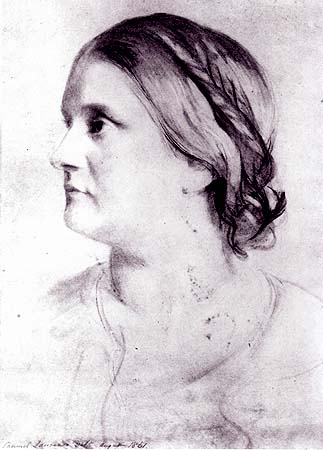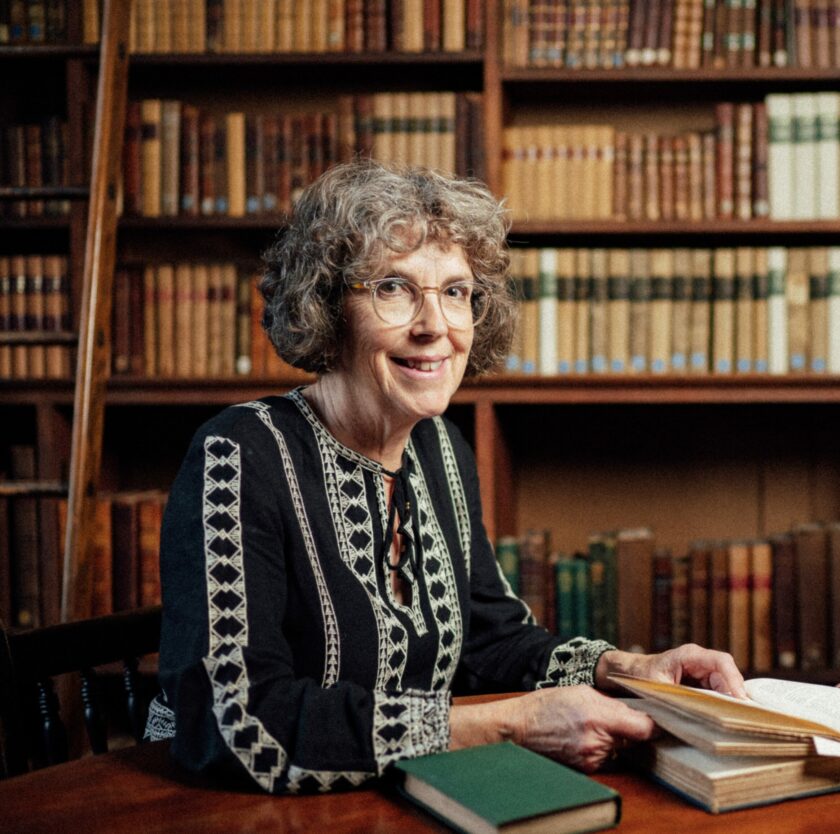Many congratulations to our Special Associate, the social historian Jane Robinson (1978, English) on the publication of her latest book, Trailblazer.

A sketch of Barbara Bodichon
Trailblazer tells the story of Barbara Leigh Smith Bodichon, one of Victorian Britain’s most influential but forgotten women. Bodichon more than merits rediscovery, Jane Robinson tells us, because she was not only a first-wave feminist and the founder of Girton College, Cambridge, but also connected to everyone from Florence Nightingale to George Eliot.
Jane Robinson goes on to argue that Barbara Bodichon has had a huge influence on the way we live our lives today. Born in 1827 as the illegitimate daughter of Liberal MP Benjamin Smith, she grew up in a progressive household and became an artist and a prominent women’s rights activist. She articulated and campaigned for equal opportunity in the workplace, the law, the polling booth and the home. She helped to co-found not only the first university college for women, but also the first women’s suffrage society. Finally, she she was a fervent campaigner not only against slavery, but for a more compassionate treatment of mental illness, against the Victorian stigma of illegitimacy and for human rights.

A diagram illustrating Bodichon’s situation at the centre of a network of progressive Victorian ideas
Given all this, the question Jane Robinson considers in her new book is why is Bodichon not better remembered by history?
‘Trailblazer: Barbara Leigh Smith Bodichon’ is published by Doubleday on 22 February, £22 hardback.
‘Jane Robinson is brilliant at putting the women back into history and her biography of Barbara Leigh Bodichon, a Victorian feminist we should all be grateful to, is as entertaining as it is necessary.’
Daisy Goodwin

Jane Robinson in the John Stuart Mill Archive at Somerville College
More Bodichon Facts
- Bodichon co-founded Girton College, the first university college for women. She played a crucial part in persuading universities to accept women students despite doctors’ dire warnings that ‘if they used their brains too much, their wombs would wither’.
- Bodichon campaigned to remove the stigma of non-working class women going out to work. She also fought for changes in the law that would allow married women to own and control property in their own right, and for them to have access to the divorce courts.
- Bodichon overcame the Victorian stigma around illegitimacy. One of the many obstacles Barbara faced in her public and private lives was the stigma of having been born outside wedlock. Her father was an MP who lived openly with the mother of his children, a milliner’s apprentice much younger than he was – so how did she overcome the stigma?
- Bodichon’s visionary view on mental health was ahead of its time. In the mid-19th century, Bodichon wrote an article advocating the treatment of mental health with compassion and understanding. She challenged the status quo by suggested that alcoholism might be a symptom of mental distress, rather than proof of moral degradation. This was at a time when women with pre-menstrual tension or postnatal psychosis were being admitted and confined to lunatic asylums.
- At the heart of friendship networks among Victorian women. Bodichon was at the centre of a hugely influential friendship circle. At the core were her relationships with George Eliot and Dante Gabriel Rossetti.